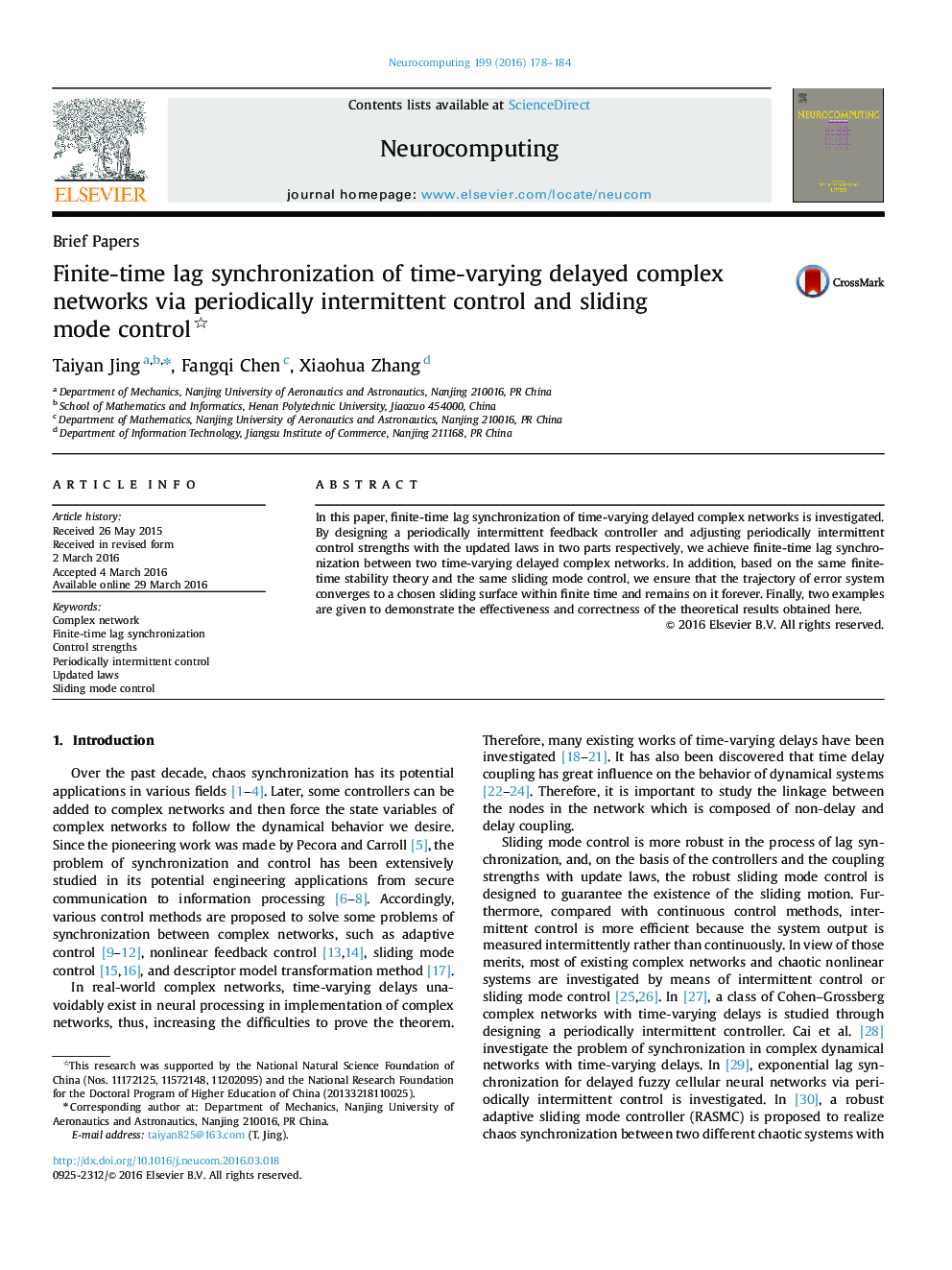| Article ID | Journal | Published Year | Pages | File Type |
|---|---|---|---|---|
| 405770 | Neurocomputing | 2016 | 7 Pages |
•The lag synchronization relies on two periodically intermittent controllers.•The error trajectory converges to a chosen sliding surface.•The finite-time stability theory is used to prove the stability.•Convergence in time is given by the finite-time stability theory.
In this paper, finite-time lag synchronization of time-varying delayed complex networks is investigated. By designing a periodically intermittent feedback controller and adjusting periodically intermittent control strengths with the updated laws in two parts respectively, we achieve finite-time lag synchronization between two time-varying delayed complex networks. In addition, based on the same finite-time stability theory and the same sliding mode control, we ensure that the trajectory of error system converges to a chosen sliding surface within finite time and remains on it forever. Finally, two examples are given to demonstrate the effectiveness and correctness of the theoretical results obtained here.
